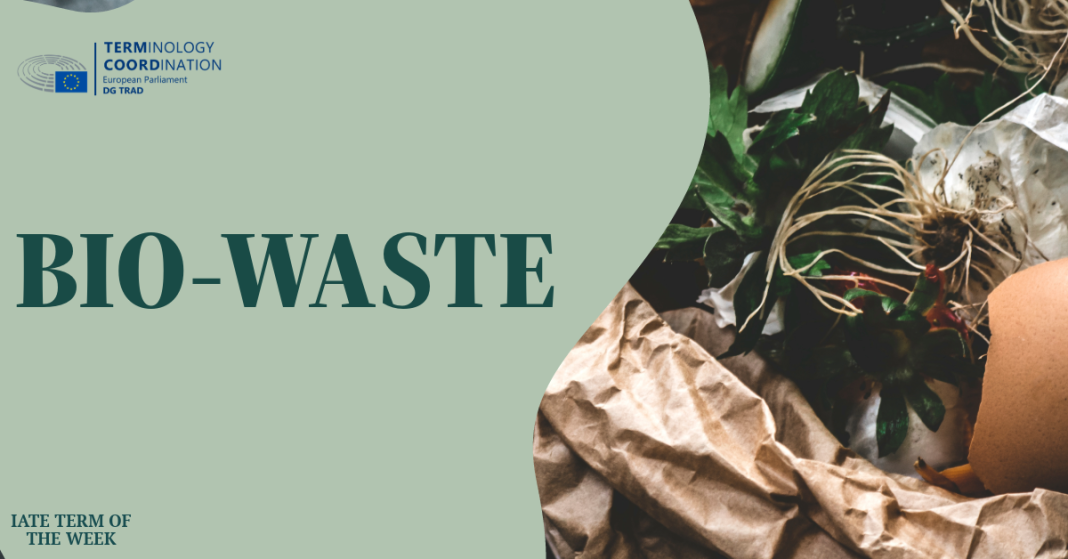Bio-waste refers to organic waste generated in both private and public settings, primarily comprising food and garden waste. Notably, bio-waste excludes forestry or agricultural residues, manure, sewage sludge, and other biodegradable waste such as natural textiles, paper, or processed wood. It holds significant potential for fostering a more circular economy by yielding valuable materials like soil enhancers, fertilizers, and biogas, serving as a renewable energy source. It also excludes by-products of food production that never reach the status of waste. The management of this crucial waste category varies across European countries due to differing policies, reflecting local conditions and capabilities.

To address this situation, the European Commission has initiated a five-step process on potential legislative proposal on bio-waste.
1. Green Paper
The Green Paper on the management of bio-waste in the European Union, published in 2008, aims to explore options for the further development of bio-waste management. It summarizes crucial background information about current policies on bio-waste management, explores new research findings in the field, presents core issues for debate, and invites stakeholders to contribute their knowledge and views on the way forward. The goal is to prepare a debate on the possible need for future policy action, seeking views on how to improve bio-waste management in line with the waste hierarchy, possible economic, social, and environmental gains, as well as the most efficient policy instruments to reach this objective.
2. Impact Assessment
Following the Green Paper, the European Commission worked together with two external companies, on an Impact Assessment of a potential legislative proposal, examining possibilities to improve the management of bio-waste in the EU. This includes providing an appropriate assessment of policy options, considering environmental, economic, and social impacts, and focusing on the risks-opportunities combination.
3. Communication from the Commission on future steps in bio-waste management in the European Union
The third action promoted on the subject is a Communication published by the Commission in 2010, analysing bio-waste management options and possible future steps in this area. It focuses on initiatives at the European level, possible prevention and treatment, and research to be conducted on the subject.
4. Follow Up
The fourth step focuses on an analysis on the appropriateness of setting targets for bio-waste recycling and the feasibility assessment of setting bio-waste recycling targets in the EU, including subsidiarity aspects.
5. Revision of the Waste Framework Directive
On July 2, 2014, the European Commission adopted a legislative proposal, which mostly promotes that recycling and preparing for the re-use of municipal waste (including bio-waste), should be increased to 70% by 2030. It aims to phase out landfilling by 2025 for recyclable waste (including plastics, paper, metals, glass, and bio-waste) in non-hazardous waste landfills, corresponding to a maximum landfilling rate of 25%. The proposal also includes measures aimed at reducing food waste generation by 30% by 2025 and introduces separate collection of bio-waste.
Conclusion
In conclusion, bio-waste, encompassing organic waste generated in both private and public settings, primarily composed of food and garden waste, has become a focal point for the European Commission’s strategic initiatives. As demonstrated through the Green Paper, the Impact Assessment , and the subsequent Communication, the EU’s comprehensive approach to bio-waste management signifies a substantial step toward realizing a circular economy.
Bibliography:
GREEN PAPER On the management of bio-waste in the European Union https://www.europarl.europa.eu/meetdocs/2009_2014/documents/com/com_com(2008)0811_/com_com(2008)0811_en.pdf
COMMUNICATION FROM THE COMMISSION TO THE EUROPEAN PARLIAMENT, THE COUNCIL, THE EUROPEAN ECONOMIC AND SOCIAL COMMITTEE AND THE COMMITTEE OF THE REGIONS – Closing the loop – An EU action plan for the circular economy https://eur-lex.europa.eu/resource.html?uri=cellar:8a8ef5e8-99a0-11e5-b3b7-01aa75ed71a1.0012.02/DOC_1&format=PDFhttps://environment.ec.europa.eu/topics/waste-and-recycling/biodegradable-waste_en
Written by Marilena Martucci
Born and raised in Fasano, Italy, she developed a deep fascination for linguistics and diverse modes of communication. Her academic journey commenced with a Bachelor’s degree in Linguistics and Intercultural Communication in Bari, followed by advanced studies in Linguistics and Translation in Pisa. Fueled by her passion for Portuguese culture and language, she embarked on two enriching Erasmus experiences in Coimbra and Lisbon. After completing her Master’s degree, she settled in Lisbon, immersing herself in the fields of Journalism and Communication while continuously refining her expertise in languages and translation. Specialising in medical translation, she furthered her academic pursuits by studying Economics and Communication. She transitioned to a career in translation as Schuman Trainee at the European Parliament, focusing on terminology. Beyond her professional life, she enjoys exploring new cuisines, cooking, dancing, and indulging in literature.

